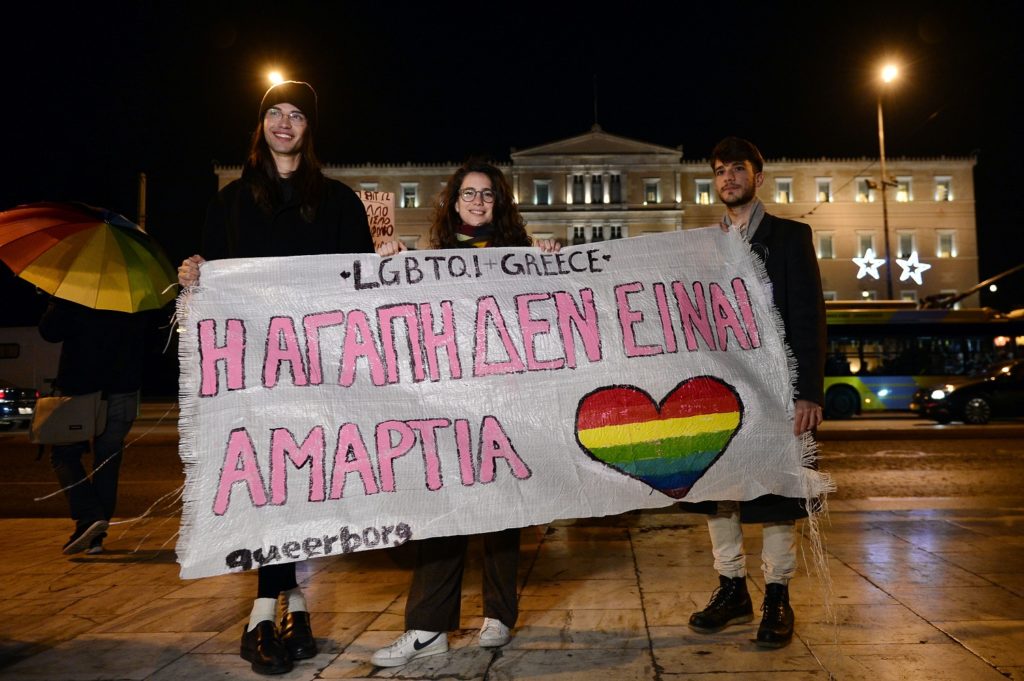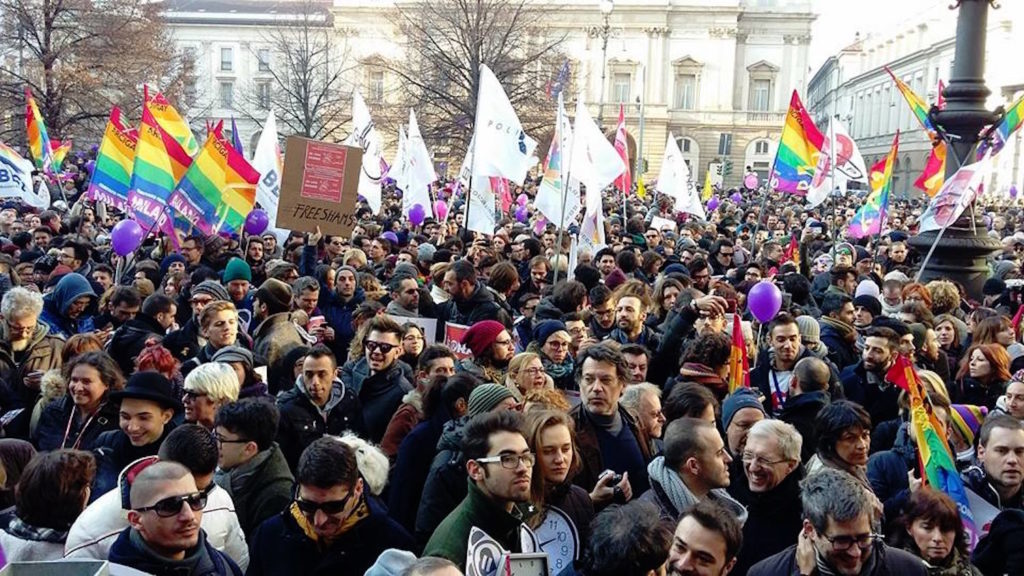Homophobia is on the rise in countries without same-sex marriage, research says

LGBT+ rights campaigners march through Belfast against the ban on same-sex marriage. (Getty)
Homophobia and increasing intolerance of LGBT+ people in some eastern European countries is linked to a failure to legalise same-sex marriage, new research shows.
The European Sociological Association found that government failure to legislate for same-sex partnerships is strongly linked to growing homophobia among citizens.
Conversely, researchers found that acceptance of LGBT+ lifestyles increased in countries where same-sex marriage was recognised. In countries with no legislation, such as Russia, acceptance fell.
Professor Judit Takacs and Dr Ivett Szalma of the Hungarian Academy of Sciences analysed survey data on 334,000 people in 30 countries between 2002 and 2016.

Members of the Athens LGBT+ community hold a banner reading ‘Love is not a sin’ outside the Greek parliament in Athens, 2015 (Louisa Gouliamaki/AFP/Getty)
Participants were asked how much they agreed or disagreed with the statement: “Gay men and lesbians should be free to live their own life as they wish.”
In most of the countries, acceptance rose over the 14 years, but in Russia, Bulgaria, Lithuania, Poland and Ukraine, it fell.
By 2016, people in Russia, Hungary and Lithuania were more likely to disagree than agree with the statement on average.
LGBT+ communities in these countries are now experiencing heightened violence, with ‘LGBT-free zone’ stickers being distributed in Poland and a ‘gay-hunting’ website targeting individuals in Russia.

LGBT-free Zone stickers distributed with the latest issue of Polish conservative weekly newspaper ‘Gazeta Polska’. Krakow, Poland on 24 July, 2019. (Beata Zawrzel/NurPhoto via Getty)
Professor Takacs shared the findings at the European Sociological Association conference on Wednesday, August 21.
“The post-socialist country-group without legal recognition of same-sex unions became less and less tolerant towards gays and lesbians over time,” she said.
“The highest increase can be observed in the southern European countries since in this period a lot of institutionalisation occurred in the region providing legal framework for same-sex unions.”
The biggest rise in acceptance was among southern European countries such as Cyprus, Greece, Italy, Portugal and Spain.
Over the last 14 years, acceptance of LGBT+ people in these countries became similar to countries such as Germany, Switzerland, Austria and Britain.

Italians take to the streets to fight for same-sex civil unions, 2016
Homophobia more likely in isolated and uneducated communities.
Researchers adjusted the data to rule out factors like the age and religion of the people surveyed, in order to study the effect of being a citizen of particular country in isolation.
When studying the effects of religion in isolation, the researchers found that the more often people went to a religious service, the less likely they were to accept gay men and lesbians.
The more educated they were, the more they were likely to accept them.

